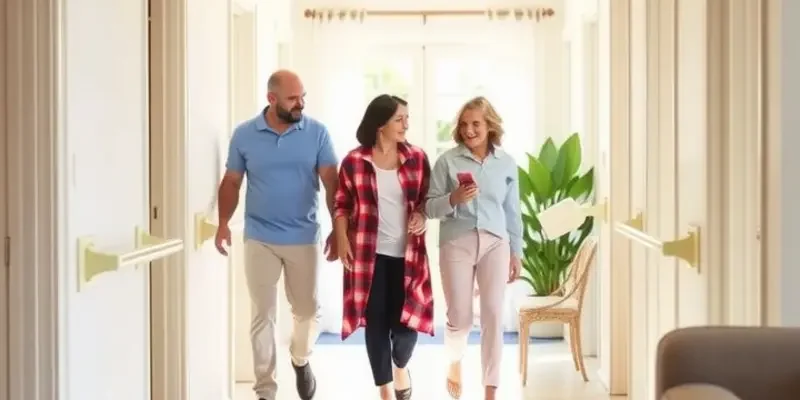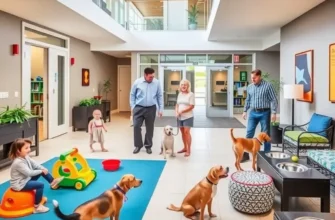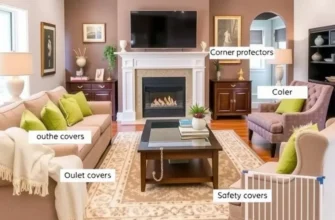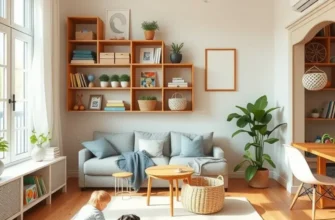Renting an apartment is an exciting yet complex process, especially for families with special needs children. The ideal living environment must accommodate specific requirements, ensuring comfort, safety, and accessibility. It’s not only about finding a place with enough space, but also about creating a nurturing atmosphere where every family member can thrive, including pets. As the housing market continues to evolve, understanding what to look for in a child- and pet-friendly apartment becomes essential. This guide will equip families, couples, and pet owners with practical tips for navigating the rental landscape. From identifying features that cater to special needs to evaluating neighborhoods, we’ll explore the various aspects to consider so that you can find a comfortable and supportive home. Let’s dive in and create the perfect living space that meets your family’s unique needs!
Identifying Key Features for Accessibility and Comfort
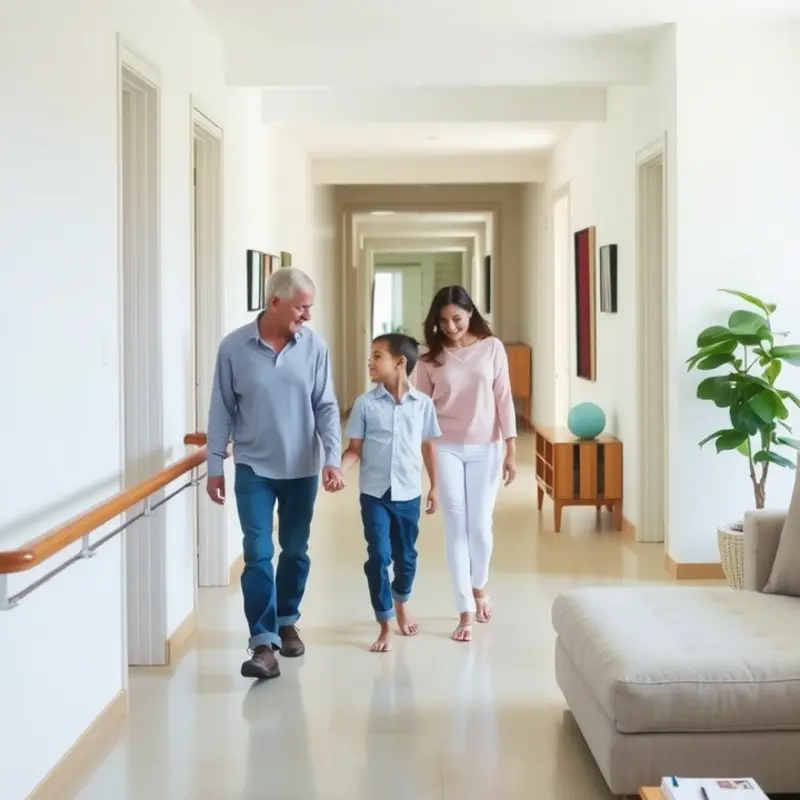
When searching for an apartment to accommodate children with special needs, identifying key features that enhance accessibility and comfort is crucial. Every family has unique requirements, but certain elements can universally improve the living experience. Focus on accessibility options, safety measures, and environmental considerations to ensure a nurturing home environment.
Accessibility Options
Apartments should ideally feature step-free entries, wider doorways, and hallways to accommodate wheelchairs or strollers. Opt for units on the ground floor or those with elevator access if mobility is a concern. In the kitchen and bathroom, look for lower countertops, reachable cabinets, and tuck-under sinks for wheelchair accessibility. Adaptive bathrooms with grab bars, non-slip tiles, and adjustable showerheads can make personal care tasks easier and safer.
Consider lighting solutions that aid visibility without being too harsh or stimulating. Adjustable, smart lighting can create a soothing atmosphere that supports various sensory needs. Incorporate apartment-friendly curtain alternatives to control natural light without permanent installations, offering flexibility and ease.
Safety Measures
Safety is paramount in a home for children with special needs. Evaluate the apartment for secure windows with locks and child-safe blinds. Balcony safety is necessary if applicable; ensure there are proper railings and locks to prevent accidents. Inside, look for non-toxic materials and finishes, especially in the paint and flooring. Electrical outlets should be covered, while furniture and other fixtures need secure anchoring to prevent tipping.
Fire safety features like smoke detectors and sprinkler systems must be in place and regularly maintained. Inquire about apartment safety audits and their findings or schedule your own evaluation to understand potential risks. Additionally, a secure environment includes controlled access to the building and proper visibility through security cameras or personnel. Consult the guide on apartment safety audits for more insights on maintaining a secure home.
Environmental Considerations
The environment within and around the apartment can significantly impact comfort. Opt for units with good insulation and ventilation, which help regulate temperature and minimize allergens. In-unit air filtration systems contribute to better air quality, while soundproofing ensures a calm and quiet atmosphere, reducing stress and sensory overstimulation.
Green spaces are crucial for the relaxation and well-being of children. Look for apartments near parks or community gardens, which offer a chance for sensory exploration and social interaction. For pet owners, verify that the apartment is pet-friendly and explore pet socialization tips to create a harmonious environment for both children and animals.
Incorporating these essential features into your apartment search addresses the unique challenges faced by families with special needs children. A balanced approach focusing on accessibility, safety, and environmental suitability ensures a comfortable and supportive home.
Finding Family-Friendly Neighborhoods
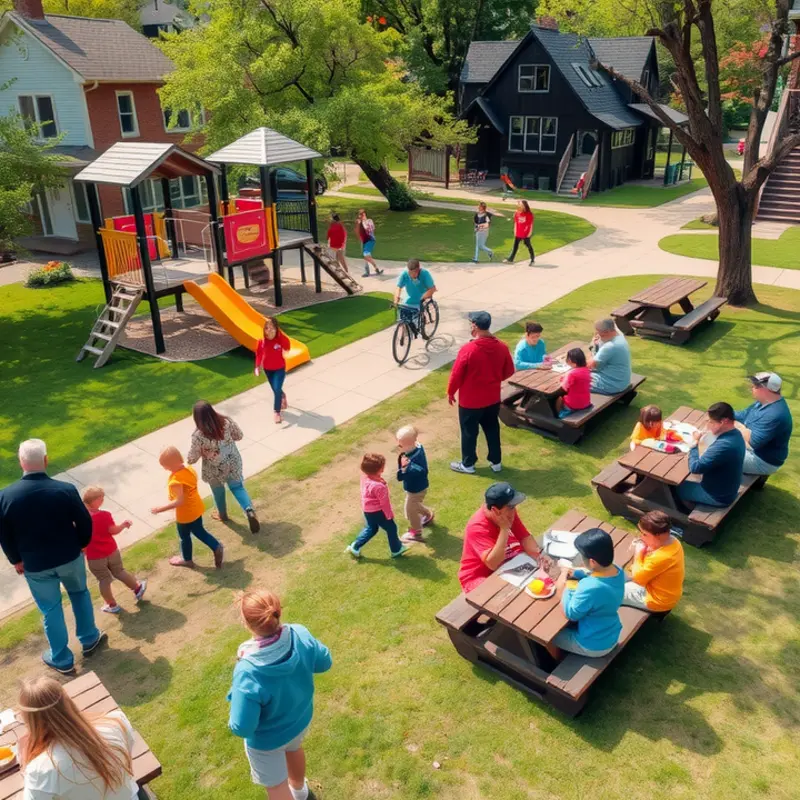
When searching for the perfect neighborhood for a family with special needs children, certain factors warrant special consideration. Proximity to quality schools and educational facilities equipped with special education programs is essential. Research local school ratings and visit facilities to gauge how well they support diverse learning needs.
Equally important is the neighborhood’s accessibility to parks and recreational areas. Safe and inclusive parks provide spaces where children can play and explore. Check if local parks have equipment and spaces designed for children with special needs and if they offer adaptive recreation programs.
Healthcare accessibility is another crucial factor. Having nearby medical facilities with specialized pediatric care can offer peace of mind. Investigate the reputation of local healthcare providers and their experience in managing the needs of special needs children. A community with a variety of support services can significantly enhance your family’s quality of life.
Community resources tailored to families with special needs are invaluable. Look for neighborhoods with support groups, workshops, and social services focused on special needs. Libraries and community centers often host events and services catering to these needs. Additionally, consider the availability and frequency of public transportation, especially if your child requires specialized services only accessible in certain areas.
Safety, of course, is paramount. Evaluate the neighborhood’s safety records. Get in touch with local law enforcement or neighborhood watch programs to understand prevalent issues and safety initiatives. Streets with lower traffic volumes and good lighting are preferable. Local residents can often provide firsthand insights into the neighborhood’s safety atmosphere and community cohesion.
Choosing the right neighborhood means aligning various factors with your family’s unique needs. Given the task’s complexity, collaborating with local real estate experts familiar with family-oriented neighborhoods might be beneficial. The more informed choices you make, the better the experience your family will have in their new home.
For additional tips on ensuring your rental is as safe as possible, consider this guide on apartment safety audits.
Final words
Renting an apartment that accommodates a family with special needs children requires careful consideration and planning. The right features, combined with a supportive community, can make a world of difference. By following the structured approach outlined in this guide, families can successfully navigate the rental market and find a place that feels like home. Always take the time to assess your unique requirements and do thorough research on neighborhoods to ensure a safe and enjoyable living experience for everyone, including your furry family members. Remember, your ideal apartment is out there, waiting to be discovered!

